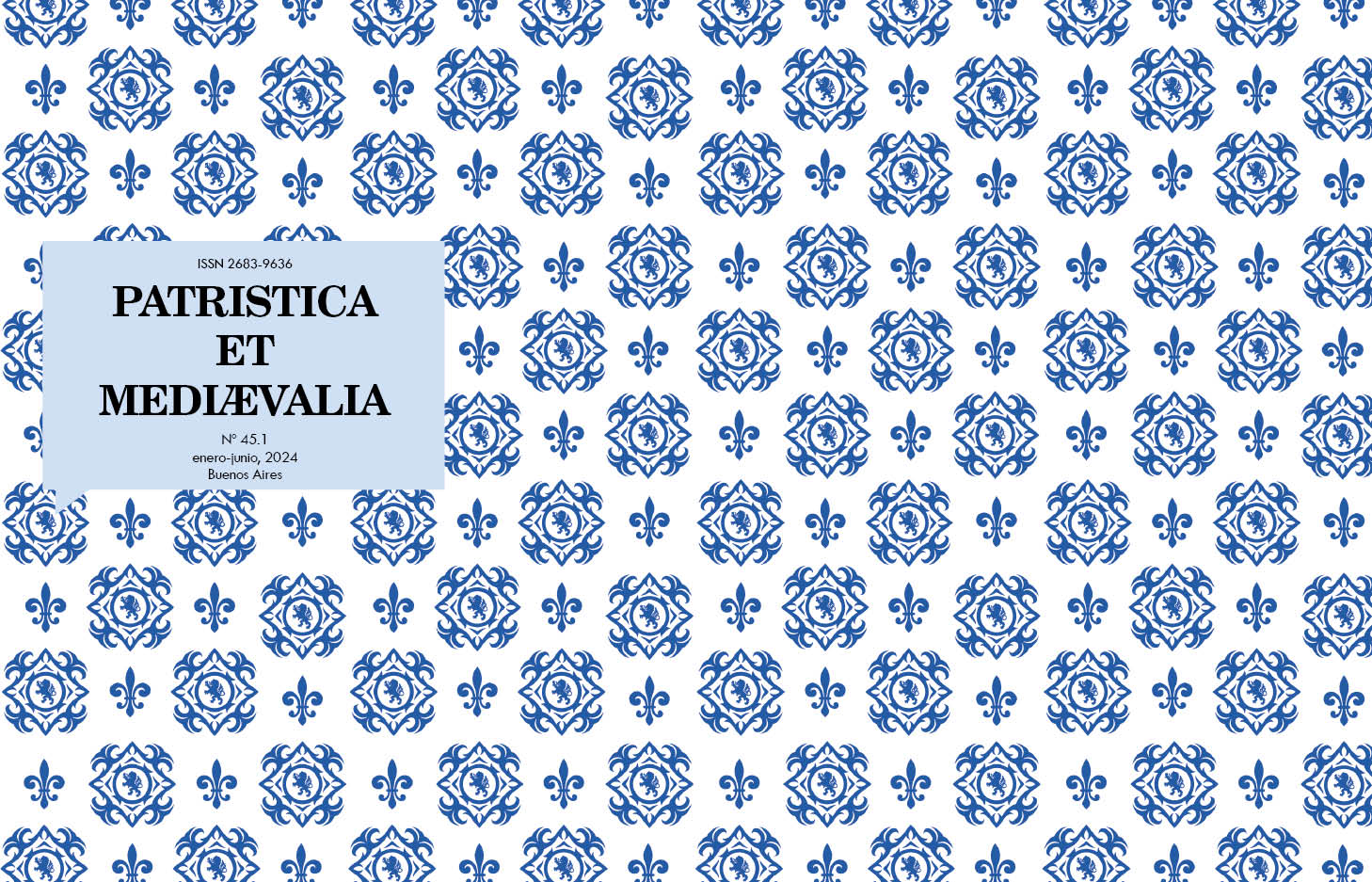St. Augustine’s Ideas in Max Scheler’s Thought
Abstract
This essay deals with the preservation of theses advanced by St. Augustine in Scheler’s phenomenology. Firstly, the main aspects of the Schelerian ordo amoris are examined. This order is revealed in emotional acts and is conceived as the essence of a world order, which is also God´s order. As God’s thoughts are the paradigms of creation, it follows that things are apprehended in lumine Dei insofar as they are envisaged according to their true being. This entails that man is the co-executor of divine action by means of a reenactment (Nachvollzug). Man is a God searcher, and this theomorphism shows that the human finite spirit is independent from all vital and psychical realities. Hence, religious acts are characterized, following St. Augustine, by the formula according to which our heart remains restless until it is founded on God. This drive cannot be satisfied by finite objects. Finally, attention is shed on Scheler´s appropriation of St Augustine’s emphasis on the role of love as the basis for acts of knowledge and will.Downloads
References
Augustinus Hipponensis (1954). Confessiones. Ed. Willems, R. Turnhout: Brepols (CCSL 36).
Augustinus Hipponensis (1955). De civitate Dei. Ed. Dombart, B. y Halb, A. Turnhout: Brepols (CCSL 47-48).
Augustinus Hipponensis (1962). De doctrina christiana. De vera religione. Ed. Daur, K. D. y Martin, J. Turnhout: Brepols (CCSL 32).
Augustinus Hipponensis (1970). Contra academicos. De beata vita. De ordine. De magistro. De libero arbitrio. Ed. Green W. M. y Daur, K. D. Turnhout: Brepols (CCSL 29).
Augustinus Hipponensis (1981). Confessiones. Ed. Verheijen, L. Turnhout: Brepols (CCSL 27).
Scheler, M. (1957). Schriften aus dem Nachlass: I. Zur Ethik und Erkenntnislehre. Gesammelte Werke 10 (GW 10). Berna: Francke.
Scheler, M. (1963). Schriften zur Soziologie und Weltanschauungslehre. Gesammelte Werke 6 (GW 6). Berna: Francke.
Scheler, M. (1968). Vom Ewigen im Menschen. Gesammelte Werke 5 (GW 5). Berna: Francke.
Scheler. M. (1972). Vom Umsturz der Werte. Abhandlungen und Aufsätze. Gesammelte Werke 3 (GW 3). Berna: Francke.
Scheler, M. (1973). Wesen und Formen der Sympathie / Die Deutsche Philosophie der Gegenwart. Gesammelte Werke 7 (GW 7). Berna: Francke.
Scheler, M. (1976). Späte Schriften. Gesammelte Werke 9 (GW 9). Berna - Múnich: Francke.
Scheler, M. (1979) Schriften aus dem Nachlass: II. Erkenntnislehre und Metaphysik. Gesammelte Werke 11 (GW 11). Berna - Múnich: Francke.
Scheler, M. (1980). Der Formalismus in der Ethik und die material Wertethik: Neuer Versuch der Grundlegung eines ethischen Personalismus. Gesammelte Werke 2 (GW 2). Berna: Francke.
Dupuy, M. (1959). La philosophie de la religion chez Max Scheler. París: Presses Universitaires de France.
Greisch, J. (2002). Le buisson ardent et les lumières de la raison. L’invention de la philosophie de la religion. Tome II. Les approches phénoménologiques et analytiques. París: Les Éditions du Cerf.
Hammer, F. (1972). Theonome Anthropologie?: Max Schelers Menschenbild und seine Grenzen. Phaenomenologica 45. Den Haag: Martinus Nijhoff.
Llambías de Acevedo, J. (1966). Max Scheler: Exposición sistemática y evolutiva de su filosofía. Buenos Aires: Nova.
Mandrioni, H. D. (1965). Max Scheler: Un estudio sobre el concepto de ‘espíritu’ en el ‘Formalismus’ de Max Scheler. Buenos Aires: Itinerarium.
Scheler, M. (1934). Muerte y supervivencia. ‘Ordo amoris’. (GW 10). Trad. Zubiri, X. Madrid: Revista de Occidente.
Scheler, M. (1940). De lo eterno en el hombre: La esencia y los atributos de Dios (GW 5). Trad. Marías, J. Madrid: Revista de Occidente.
Scheler, M. (1950). Esencia y formas de la simpatía (GW 7). Trad. Gaos, J. Buenos Aires: Losada.
Scheler, M. (1960). Amor y conocimiento (GW 6). Trad. Klein, A. Buenos Aires: Sur.
Scheler, M. (2001). Ética. Nuevo enfoque de fundamentación de un pluralismo ético (GW 2). Trad. Rodríguez Sanz, H. Madrid: Caparrós.
1. The authors who publish in this magazine accept the following conditions:
-
They retain the copyright and grant to the magazine the right of the first publication, with the work registered under the Attribution-ShareAlike 4.0 International License that allows third parties to use what is published as long as they mention the authorship of the work and the first publication in this magazine.
-
They can make other independent and additional contractual agreements for the non-exclusive distribution of the version of the article published in this magazine (eg. include it in an institutional repository or publish it in a book) provided that they clearly indicate that the work was first published in this journal.
-
They are allowed and recommended to publish their work on the Internet (for example on institutional or personal pages).
2. AutoArchive Conditions. Authors are allowed and encouraged to distribute post-print electronic versions of their manuscripts because it promotes their circulation, a possible increase of quotation and a major reach among the Academic community. Color RoMEO: blue.













